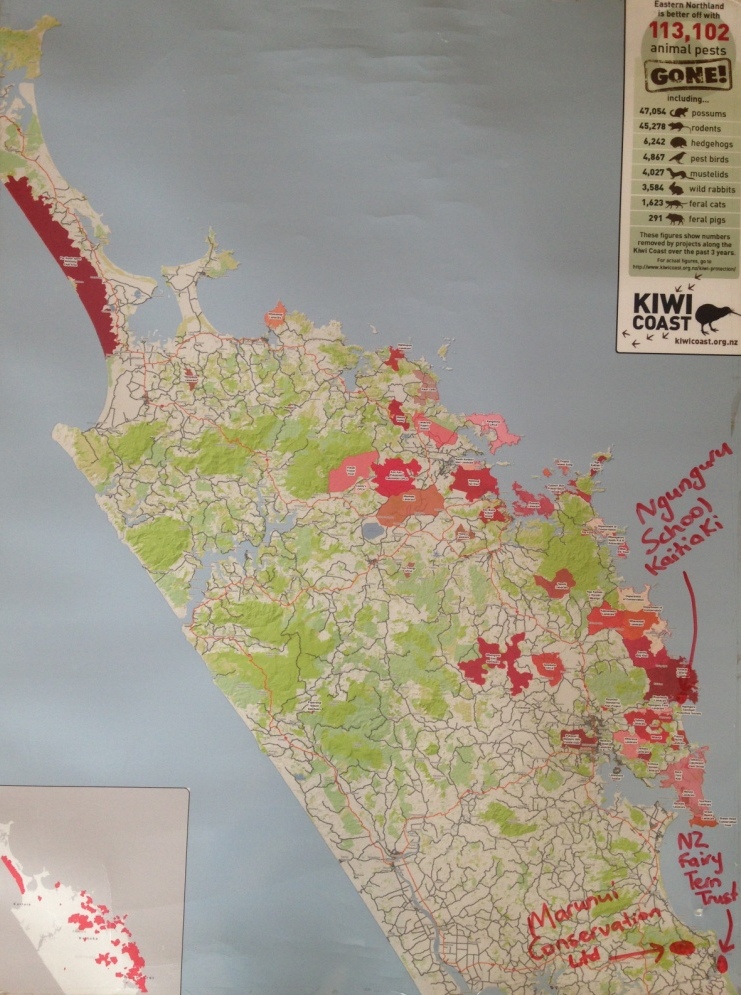Three new projects joining the Kiwi Coast have significantly expanded both the geographic extent and deepened the educational dimensions of the initiative.

This week sees the Kiwi Coast expand to the southernmost border of the Northland region as both Marunui Conservation Ltd in the Brynderwyn’s and the NZ Fairy Tern Trust based in Mangawhai link in. At the same time, in another significant step, the first school has joined the Kiwi Coast, with the Ngunguru School ‘Restoring Food Chains’ project getting involved. This will deepen the Kiwi Coast’s support and linking of education initiatives with on-the-ground community-led conservation.
The Kiwi Coast is defined by the projects, groups and organisations that link into it. The initiative continues to grow and evolve as new community groups form, existing projects link in, and different types of projects get involved.
Marunui Conservation Ltd cares for Northland’s southernmost kiwi population on a 423ha property in the Brynderwyns. The entire property is is covered by a QE II National Trust open space covenant which protects the indigenous flora and fauna in perpetuity. In 2013 fourteen Northland brown kiwi were translocated to Marunui from Motuora Island after being absent from the Brynderwyns for nearly 50 years. This established Northland’s southernmost kiwi population.
The NZ Fairy Tern Charitable Trust cares for NZ’s rarest endemic bird. There are less than 40 New Zealand fairy tern remaining, including just 10-12 breeding pairs that are limited to four sites at Mangawhai, Papakanui, Waipu and Pakiri. The NZ Fairy Tern Trust work with the Department of Conservation to carry out intensive animal pest control and assist the birds to breed successfully and add vital new stock to the small remaining populations.
These two southern projects provide the potential to explore linkages from the Brynderwyns to Bream Tail to link community-led projects from forest to sea looking after some of New Zealand’s special and iconic flora and fauna.

The Ngunguru School ‘Restoring Food Chains‘ project empowers the school students as kaitiaki to take an active role in learning and caring for their local environment:
“We are young kaitiaki on the Tutukaka Coast who are working hard to explore and learn about our stunning and unique eco-system. We run the Restoring Food Chains project in our school bush. We are working hard to restore the native food chain in Te Ngahere”
With Ngunguru School becoming the first school to link into the initiative, both the breadth and depth of the educational aspects of the Kiwi Coast are increased as other educational programs are already knocking on the door to get involved too!
If you would like to link your project into the Kiwi Coast or find out how to start your own community-led conservation project contact Ngaire the Kiwi Coast Coordinator.


